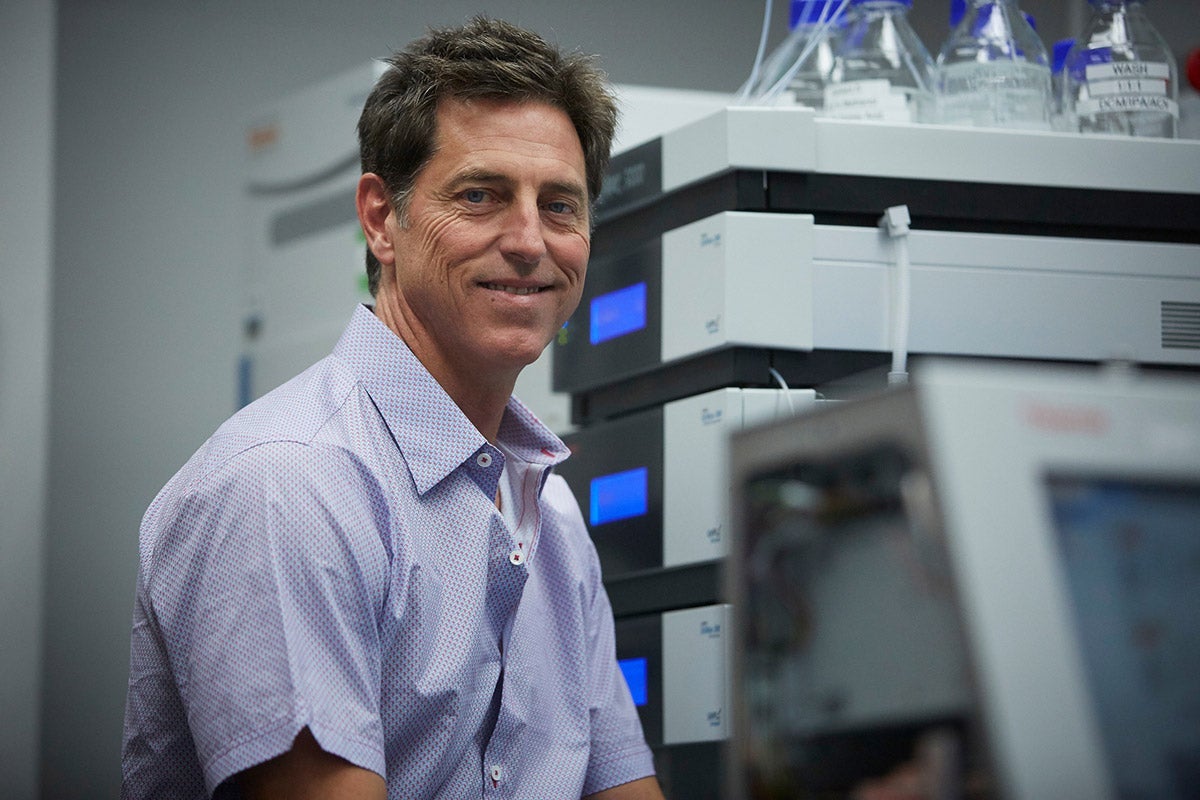Off the cuff—Lipids and Aging: Mapping the Next Frontier

By Robert V. Farese, Jr. Chair, Department of Molecular Metabolism

In the Farese & Walther Lab—which I direct jointly with Tobi Walther, professor of molecular metabolism—we study lipid and energy metabolism in cells. If you look at the big noncommunicable diseases of aging that the Harvard Chan School is concerned about, lipid metabolism is critical in every case: atherosclerotic heart disease, where cholesterol accumulates in the arteries; or obesity and obesity-associated metabolic diseases such as fatty liver disease, type 2 diabetes, or the cardiomyopathy that can accompany metabolic syndrome. In each of these conditions, the underlying cause relates to abnormalities of lipid metabolism that may trigger inflammation.
While the lipid-disease connection is less well studied in cancer, it is increasingly recognized as an area that needs investigation. In recent years, more attention has been directed at the fuels that drive cancer cells to proliferate. Some cancers utilize fats for membrane synthesis in proliferation. Some tumors have a lot of lipid metabolism genes that are turned on—including certain pancreatic tumors, ovarian cancer, possibly even brain glioblastomas. We also know that some cancers require or utilize stores of fats; clear-cell renal cell carcinoma, for example, accumulates large amounts of fat.
The question is: Are those fat stores just a byproduct, a marker of the disrupted metabolism, or are they a requirement for those cancer cells to proliferate? If we could figure out the basic biology, then we may have new ideas for treatments. For example, if you had a drug that blocked lipid synthesis, it might synergize with more conventional cancer drugs that inhibit either cell proliferation in cancer cells or the vascular development that feeds tumors. Along other lines, our brains are, by weight, about 60 percent lipids; one idea we’ve had in our laboratory is that adult neurodegeneration may reflect disruptions in lipid metabolism.
Many schools of public health focus primarily on global health, epidemiology, and data-driven science. But from its inception, our School has had a rich history of trying to understand the basic biological mechanisms that underlie public health problems. Data-driven science finds associations. Basic science looks for causation. In the early days at the Harvard Chan School, much of the work was around infectious diseases. Increasingly, our researchers became interested in the biology of environmental stresses and nutrition. Today, our job in the basic sciences is to turn the wheel from observation and association back to hypotheses around biological mechanisms and causation, completing the cycle.



